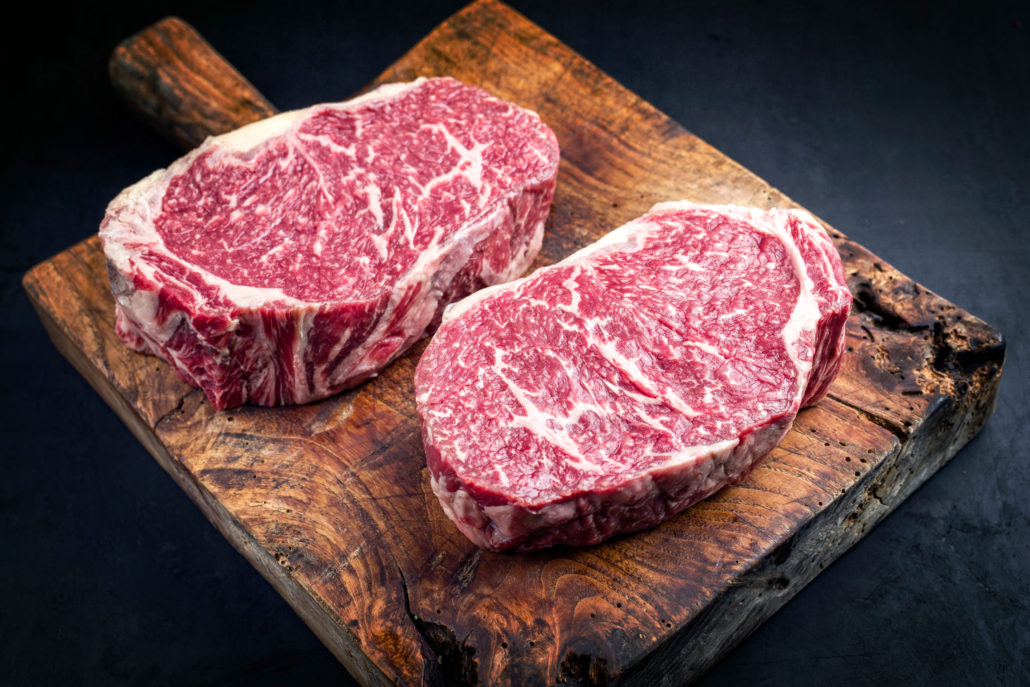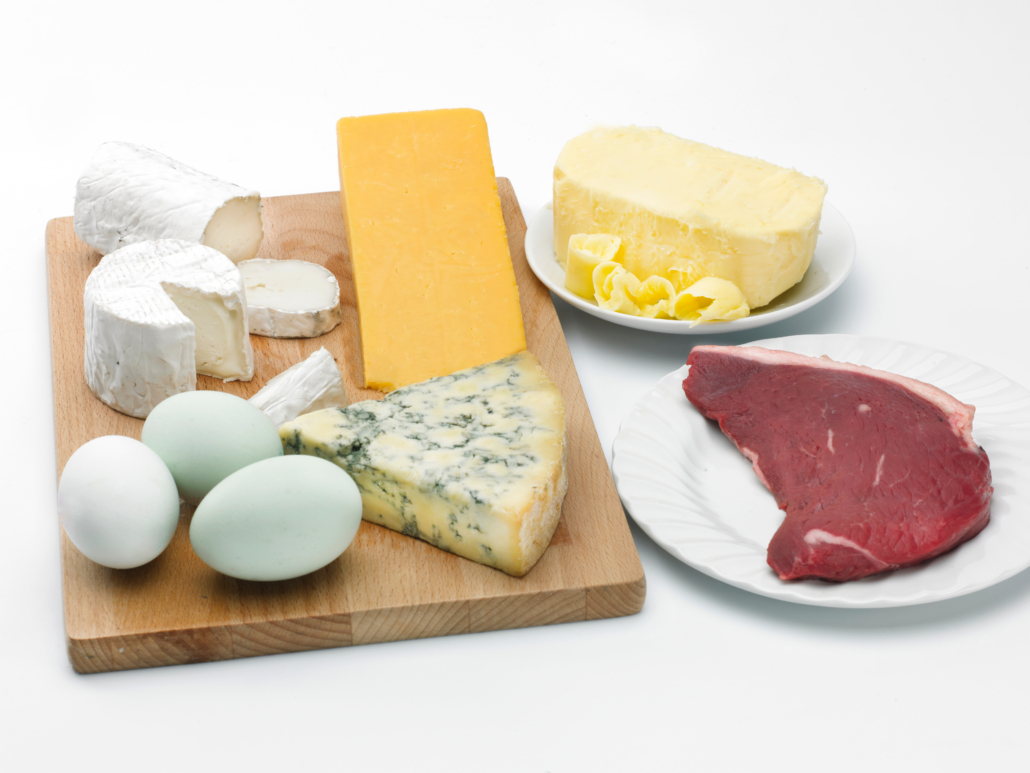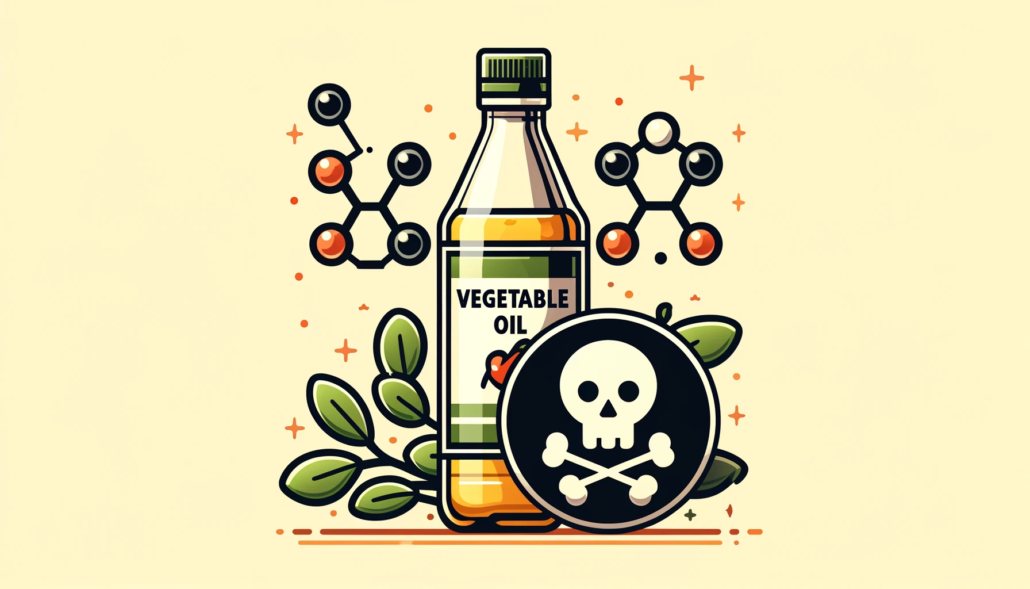We include products in articles we think are useful for our readers. If you buy products or services through links on our website, we may earn a small commission.
Is Steak Healthy? What the New Science Says

For over 70 years, nutritional scientists have been debating the question, is steak healthy?
Some older observational studies that include processed meats have correlated eating meat with certain cancers and heart disease. While more recent, higher-quality randomized control trials and review studies reveal that fresh steak and its saturated animal fat are not dangerous.
In 2021 the first high-quality studies of the all-meat carnivore diet have been released, showing that eating primarily steak while forgoing plant foods is remarkably healthy.
In this article, we’ll explore the latest nutritional evidence to offer a comprehensive answer the question, is steak healthy?
Table of Contents
The New Science on Steak and Health
Numerous recent studies are setting the record straight on the health benefits and risks of eating steak. Here’s a rundown:
Anti-Steak Studies are Outdated
Original guidelines for limiting steak due to saturated fat content date back to observational studies from the 1950s. Observational studies cannot determine causation, only correlation.
Fresh Steak is Not Associated with Disease
Numerous modern, high-quality studies that include over 1 million participants and are published in the most trusted medical journals find that for the average person, saturated fat–the kind that steak has been demonized for–is not significantly associated with heart disease, cancer, stroke, diabetes, and death from heart attack [1] [2] [3] [4] [5].
Differences Between Fresh Steak and Processed Meat
There is likely a significant difference in health outcomes between eating fresh steak and processed meat.
A major 2020 study co-authored by researchers from the world’s most renowned medical schools and published in the prestigious Journal of the American College of Cardiology found, “Although intake of processed meat has been associated with increased risk of CHD, intake of unprocessed red meat is not, which indicates that the saturated fat content of meat is unlikely to be responsible for this association.” [6]
Saturated Fat is Not Bad for You
Saturated fat consumed as part of whole animal foods, including fresh steak, is healthy for most people [7] [8] [9] [10] [11] [12] [13].
In fact, studies show that getting rid of fatty meat like ribeye steak, and replacing it with lean protein like chicken, may increase the risk of certain cancers [17].
Researchers have found that “Whole-fat dairy, unprocessed meat, and dark chocolate are SFA-rich foods with a complex matrix (of nutrients) that are not associated with increased risk of CVD. The totality of available evidence does not support further limiting the intake of such foods” [14].
Authors of a wide-ranging 2019 study aimed at identifying possible benefits of reducing meat concluded, “The certainty of evidence for these risk reductions was low to very low.” [15]
Similarly, a 2011 analysis of 25 studies found insufficient evidence to support an association between steak and colon cancer–the most common cancer attributed to eating steak [16].
Fresh Steak is Loaded With Healthy Nutrients
Fresh steak is among the most nutrient-dense foods on earth. It provides an abundance of bioavailable and meat-specific nutrients, is highly satiating, and is associated with numerous markers of health, fertility, and longevity [17][18].
We’ll take a closer look at these meat-specific nutrients shortly.
Eating Meat Promotes Longevity
Total meat consumption correlates with greater life expectancy independent of total caloric intake, economic status, urban advantages, and obesity [16].
High-Steak Low-Carb vs. Vegetarian Diets
The longevity associated with meat is likely due to specific health benefits. Studies comparing steak-heavy low-carb, high-fat diets to vegetarian diets reveal dramatically better outcomes for the high-steak diets for markers of cardiovascular health, weight loss, and blood sugar regulation [19][20][21].
It is worth noting that the meat in these diets was low fat. Based on evidence that substituting lean meat for animal fat is likely worse for your heart, we believe that a diet with fattier meat would result in greater health benefits.
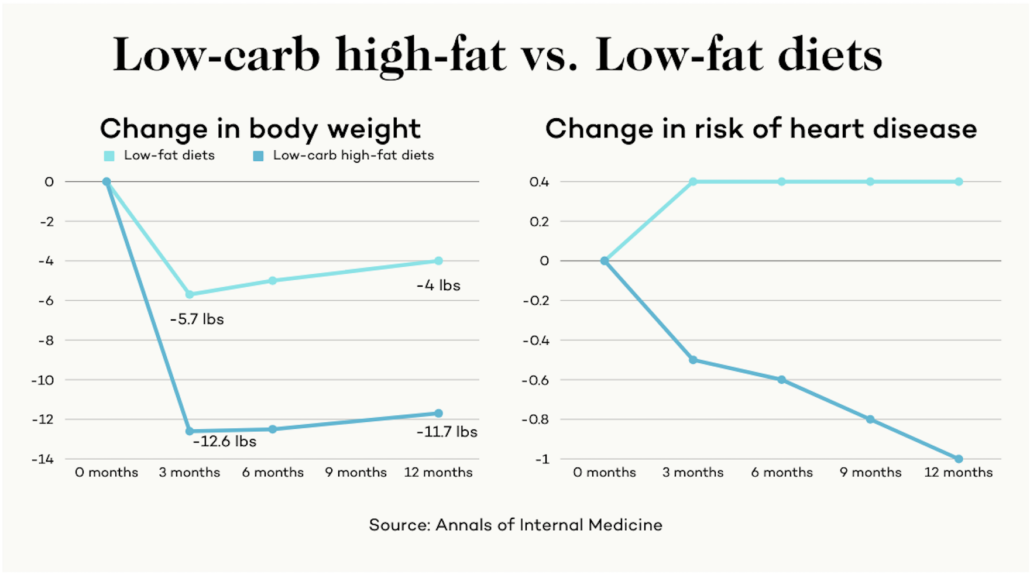
Humans Evolved Consuming a Diet of Mostly Meat
The physiology of modern humans is nearly identical to that of our caveman ancestors. For nearly 2 million years our ancestors evolved and physically adapted to a diet of mostly fatty red steak-like meat. This suggests that our bodies are evoled to thrive on steak [22].
No wonder steak provides an almost perfect balance of highly bioavailable macro and micro nutrients.
Eating Regeneratively Raised Steak Can Benefit the Environment
Meat can be farmed with “regenerative agricultural practices” or “carbon farming” This can sequester carbon and improve soil health [23].
At current rates, industrial agriculture of plant foods will destroy all arable topsoil in 60 years [24]
Modern Science on Benefits Associated With An All Meat Diet
One of the most eye-opening studies suggesting that steak is healthy came out of Harvard University in 2021.
Researchers Dr. Belinda Lennerz and Dr. David Ludwig, tracked the effects of a carnivore diet for 2,029 people over six months [25].
They concluded, “Contrary to common expectations, adults consuming a carnivore diet experienced few adverse effects and instead reported health benefits and high satisfaction.”
The overwhelmingly positive results included:
- 93% improved or resolved obesity and excess weight
- 93% improved hypertension
- 98% improved conditions related to diabetes
- 97% improved gastrointestinal symptoms
- 96% improved psychiatric symptoms
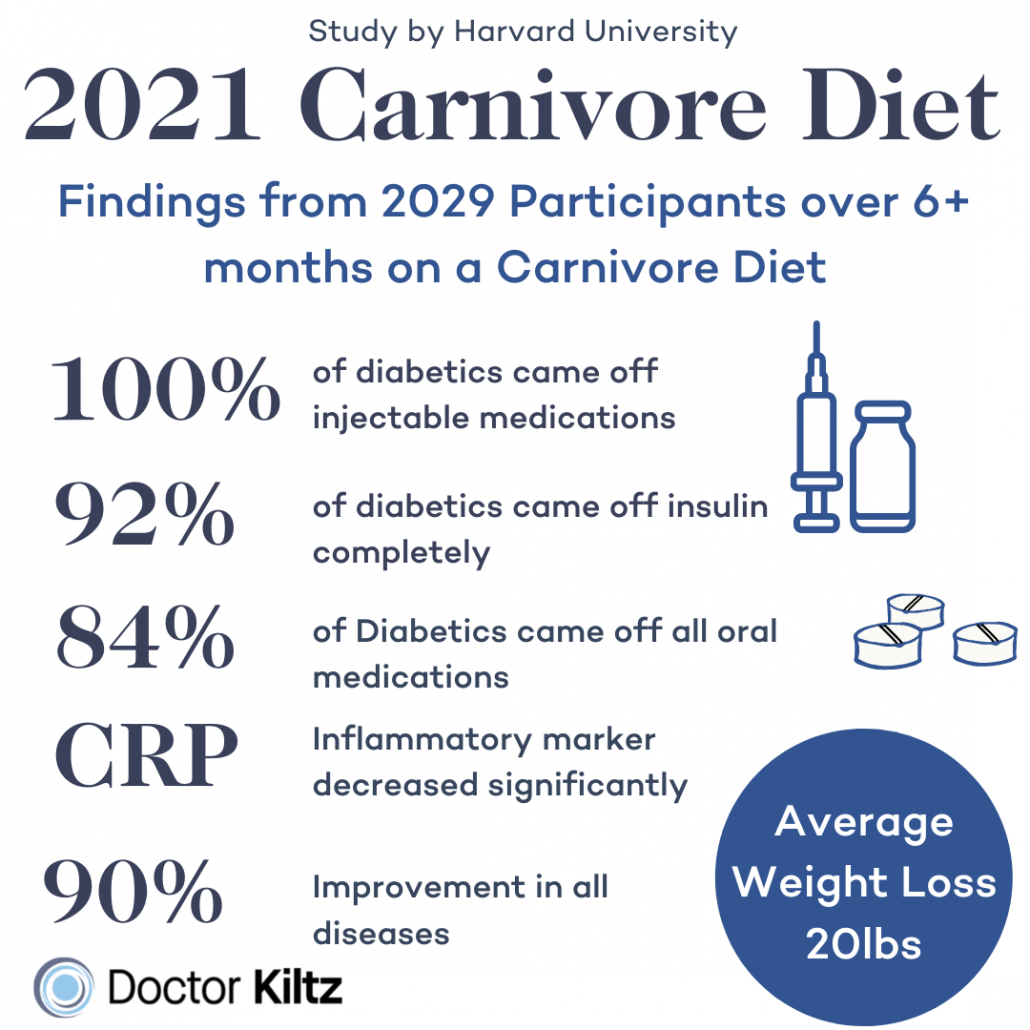
It is worth noting that the results were self-reported and therefore less reliable than randomized control trials. However, they align with the tens of thousands of anecdotal reports from carnivore dieters extolling how an all meat–mostly steak–diet boosts energy and mental clarity, improves bowel function and clears up gastrointestinal issues, promotes clearer skin, and reverses diabetic and pre-diabetic conditions.
Eating More Steak Can Help you Eliminate Plant Toxins
Ruminant animals like cows can eat, digest, and ferment plant foods into fatty acids that become part of their meat.
Humans on the other hand, cannot digest many parts of plants, absorb their carbs, and get exposed to various plant toxins and antinutrients.
When you eat steak instead of plant foods you reduce your exposure to added sugars, processed grains, plant defense mechanisms, and industrial vegetable oils. This is also why steak on keto is such a great fit.
All of these compounds can contribute to chronic inflammation, heart disease, cancer, diabetes, and numerous other negative health outcomes [26] [27] [28] [29].
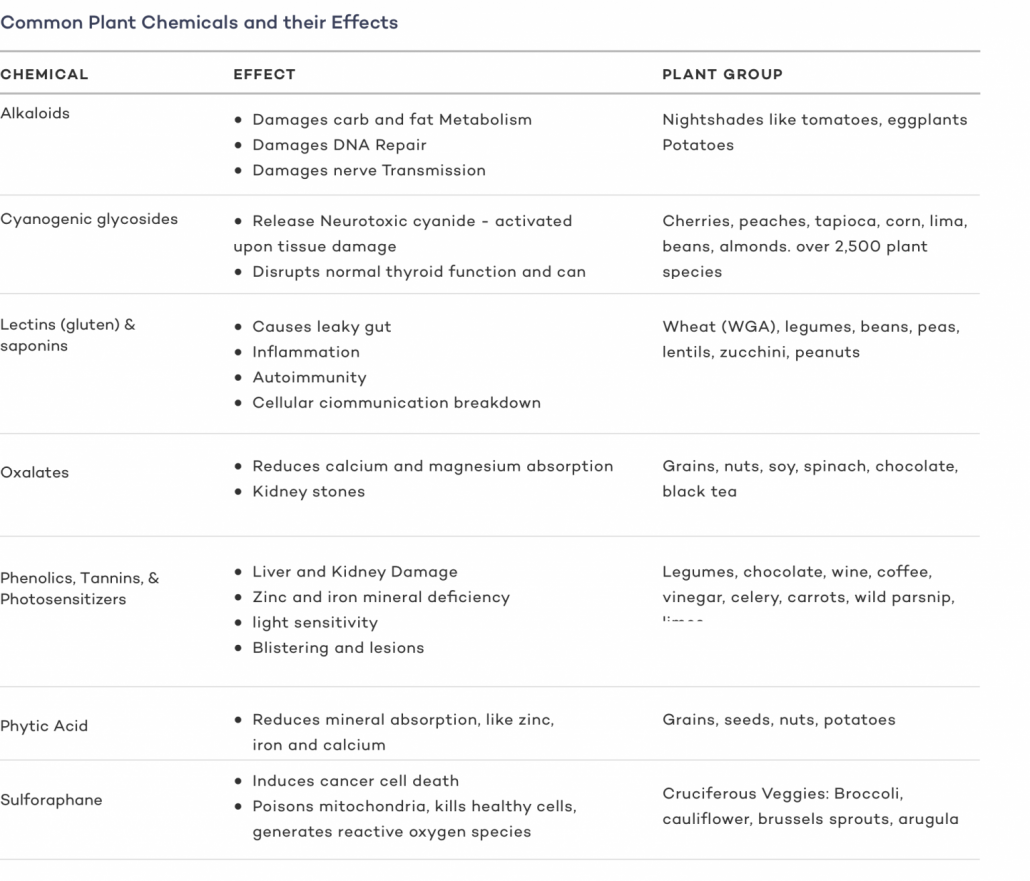
Nutrients in Steak that Promote Health
Steak is objectively nutritious when considering its macro and micronutrient profile. Most people think of the health benefits of steak as exclusively having to do with protein. It is true that steak provides all the essential amino acids that humans need to get from food–making it a “complete” protein. Your body uses this protein to grow and maintain muscle, body tissue [30][31].
Beyond protein, steak provides various other beneficial micronutrients and compounds, many of which are found only in meat.
The nutrients in steak contribute to and support numerous health benefits, including:
- Supports fertility in men and women
- Energy production
- Weight loss
- Anti-aging
- Antioxidant effects
- Gene expression
- Better mood
- Cognitive and neurological health
- Stimulated stem cell production
- Supports immune function
Let’s take a look at some key nutrients in steak and how they can support your health.
Conjugated Linoleic Acid (CLA)
Steak, especially pasture-raised, provides high levels of a beneficial type of fat called conjugated linoleic acid (CLA) [32].
This is one of those nutrients you can only get from food–your body can’t synthesize it on its own.
The health benefits of CLA include [33][34][35[36][37]:
- Reduced body fat, increased lean muscle mass
- Reduces risk of atherosclerosis
- Immune support
- Prevents and treats diabetes
- Promotes bone formation and mineral density
Stearic Acid
- One of the most abundant saturated fatty acids in steak
- Improves body fat ratio
- Supports mitochondrial function
- Promotes weight loss [38]
- Has been shown to slightly lower or have a neutral effect on LDL (bad) cholesterol [39]
- No evidence of raising your risk of heart disease [40]
Vitamin A
- Regulates more than 500+ genes
- Essential for stem cell differentiation.
- The ‘preformed’ vitamin A found in steak and especially beef liver is far more bioavailability than beta carotene in plants [1]
B Vitamins
- B vitamins in steak are critical to helping your body convert food into energy
- Promotes formation of red blood cells that carry oxygen to the brain
- Boost cognition and stabilizes mood
- Found almost exclusively in steak and other animal products[41]
Vitamin B12
- Up to 86% of vegan children, 90% of vegan elderly, and 62% of pregnant vegan women are B12 deficient [42
- B12 deficiency can result in dementia and is associated with Alzheimer’s disease [43]
- A powerful antidepressant [44]
Vitamin K2
- Helps regulate calcium in our bones and brains
- Stimulates stem cell production in bone marrow
- helps prevent heart disease
- K2 deficits have been linked to Alzheimer’s disease [45]
Heme Iron
- Only found in steak and red meat
- Far more bioavailable than iron from plant foods
- Essential to the formation of red blood cells
- Promotes energy metabolism
- Supports immune function
- Vital to cognitive ability
- Without sufficient iron you will get anemia [46] [47] [48] [49]
Copper
- Critical for creating energy
- Maintains blood vessels integrity
- Key to the formation of connective tissue
- A critical factor in immune function, nervous system health, gene activation, brain development, hormone metabolism, and fertility[50]
Zinc
- Low levels of zinc are associated with erectile dysfunction and lower sperm count in males [51]
- Zinc in steak is 400% more bioavailable than zinc found in breakfast cereals [52]
- Studies show that vegans and vegetarians have low zinc levels and lower levels when compared to meat-eaters. [53] This is due to phytic acid in plant foods that block absorption.
- Zinc deficiency affects motor development and cognitive development in children [54]
- Protects against coronary artery disease
- Essential in insulin formation
- Increases glycemic control for diabetics [55] [56]
Carnosine
- A promising anti-aging compound
- Found exclusively in steak and other meat
- Concentrated in areas of the body with high energy demands, including the heart, brain, and muscles, where it protects these parts from wear and tear [57] [58]
- Prevents glycation–the damaging process of glucose molecules attaching to cells and DNA.[59]
- A potent antioxidant that protects against damage and shortening of telomeres[60]
Carnitine
- Found almost exclusively in meat
- Plays a vital role in improving male fertility [61]
- Reduces anemia, especially when co-occurring with kidney dysfunction. [62]
- May play a major role in mitochondrial function and insulin sensitivity for people with type 2 diabetes [63]
- In heart attack patients, carnitine can prevent ischemia in cardiac muscle [64]
Creatine
- When vegetarians add creatine supplements to their diets they show improved cognitive function [65]
- improves athletic performance in both vegetarians and omnivores [66]
- Alzheimer’s patients show lower creatine levels [67]
- Improves cardiovascular performance in patients with heart failure
- For people with type 2 diabetes, supplementing with creatine combined with exercise improves glycemic control [68]
Taurine
- A powerful antioxidant.
- Reduces glycation
- Reduces inflammation and oxidative stress.
- Antidepressant effects, accounting for the general well-being that many people feel after eating steak
CoQ10
- A coenzyme that supports energy generation in cells by making adenosine triphosphate (ATP)
- Powerful antioxidant properties linking it with the prevention of cancer [69]
- A powerful anti-fatigue factor
- Increases sperm motility [70] [71]
Health Benefits of Traditional Meat-Based Diets
One of the most important researchers working on the question, is steak (and meat in general) healthy? was Dr. Weston A. Price (1870-1948).
Dr. Price traveled to remote parts of the world in a quest to discover the secret to excellent dental health (he was a dentist) and the absence of disease among many traditional cultures.
Dr. Price found that what these cultures had in common was the prioritizing of meat, especially fatty cuts and organ meats.
Compared to a modern Western diet, traditional meat-centered diets provided:
- 400% more water-soluble vitamins including vitamin C, B vitamins, calcium, and numerous other minerals
- 1000% more fat-soluble vitamins from animal foods like fatty muscle meat (steak), ghee, tallow, lard, fish roe, oysters, organ meats, and eggs

Health Benefits of Eating Fatty Steak
It’s worth noting that Dr. Price recognized the prizing of fatty meats–the best cuts of steak are all the fattiest.
Recent research shows that though total saturated fat intake is not related to incidences of heart disease, substituting animal protein for animal fat may increase your risk of heart disease 15.
This is another example of how mainstream diet recommendations may be dangerously wrong. Swapping out fatty steak for lean meats is the wrong approach.
When we look at health and nutrional data from the last 100 years, we can see a strong correlation between reducing animal fats with increases in obesity and heart disease.
The bottom line is that steak is highly nutritious and loaded with essential proteins, fats, vitamins, and minerals that support nearly every bodily function.
To bring the nutritional healthiness of steak home, let’s look at the nutrients in a few of healthiest cuts of meat.
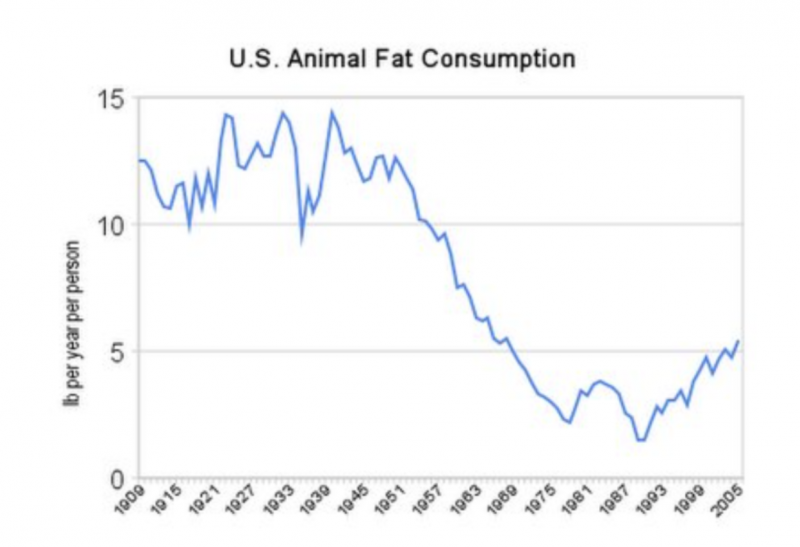
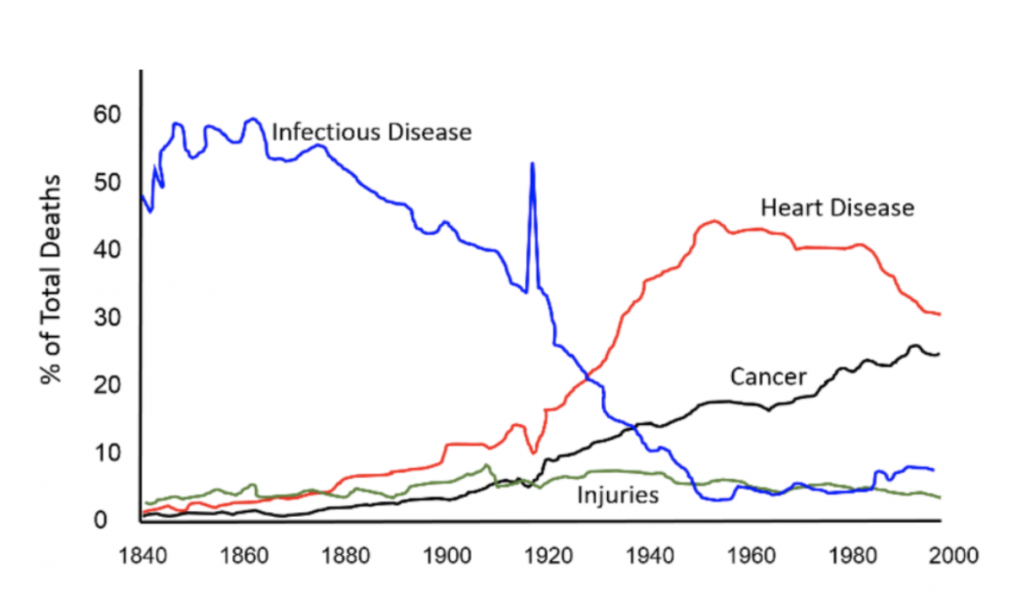
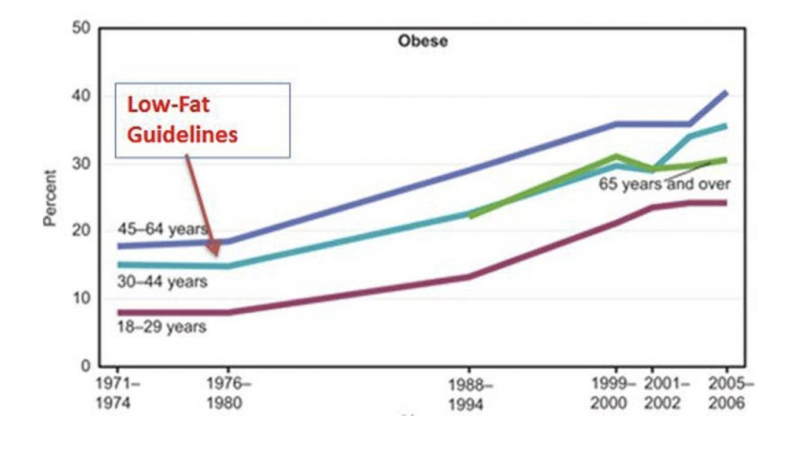
Source: National Center for Health Statistics (US). Health, United States, 2008: With Special Feature on the Health of Young Adults. 2009 Mar. Chartbook.
Ribeye Steak
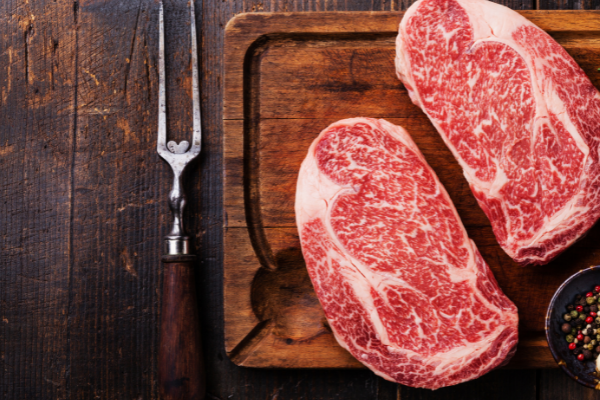
Ribeye steak is succulent, delicious, and abundant in vital nutrients like B vitamins, zinc, and selenium.
Dr. Kiltz makes ribeye the centerpiece of his three pillars of health and wellness.
Ribeye is so abundant in nearly every essential nutrient that you can thrive on a diet of ribeye steak, salt, and water alone. This approach is known as the lion diet
| NUTRIENT | 200G (7 OZ) | |
| Calories | 582 cal | |
| Fat | 55g | |
| Saturated Fat | 20g | |
| Monounsaturated Fat | ||
| Carbs | 0 | |
| Protein | 48g | |
| Vitamins | ||
| B1 (Thiamin) | 14% | |
| B2 (Riboflavin) | 35% | |
| B3 (Niacin) | 44% | |
| B6 | 60% | |
| B12 | 245% | |
| Minerals | ||
| Magnesium | 12% | |
| Potassium | 18% | |
| Iron | 31% | |
| Copper | 33% | |
| Phosphorus | 42% | |
| Selenium | 93% | |
| Zinc | 113% |
New York Strip
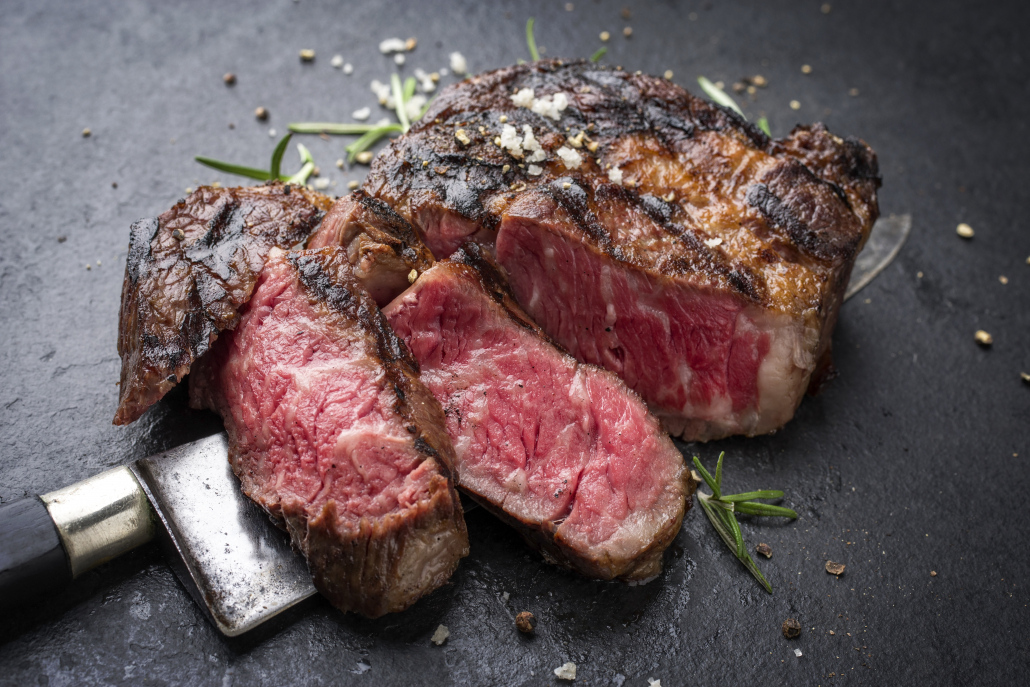
This steakhouse staple features succulent marbling making it a favorite on the grill and in the pan.
When it comes to health, New York strip provides a similar nutrition profile to ribeye– it’s especially abundant in B vitamins, zinc, and selenium.
| NUTRIENT | 200G (7 oz.) |
| Calories | 616 cal |
| Fat | 44g |
| Saturated Fat | 17.7g |
| Monounsaturated Fat | |
| Carbohydrates | 0 |
| Protein | 51g |
| Vitamins | |
| B1 (Thiamin) | 8.5% |
| B2 (Riboflavin) | 21% |
| Choline | 25% |
| B5 (Pantothenic acid) | 30% |
| B3 (Niacin) | 90% |
| B6 | 108% |
| B12 | 113% |
| Minerals | |
| Magnesium | 11% |
| Potassium | 19% |
| Iron | 21% |
| Copper | 18% |
| Phosphorus | 45% |
| Selenium | 80% |
| Zinc | 55% |
Beef Short Ribs

A staple in many Asian cuisines, beef short ribs can melt off the bone.
Shortribs nourish you with 250% RDV of vitamin B12 and 102% of zinc.
These health-promoting nutrients are cticial to your bodies ability to accomplish more than 300 essential functions from immune response, to DNA synthesis, and metabolism of food into energy [72] [73] [74].
| NUTRIENT | 200G (7 oz.) |
| Calories | 470 cal |
| Fat | 36g |
| Saturated Fat | 16g |
| Monounsaturated Fat | |
| Carbohydrates | 0 |
| Protein | 34g |
| Vitamins | |
| B1 (Thiamin) | 14% |
| B2 (Riboflavin) | 26% |
| Choline | 22% |
| B3 (Niacin) | 42% |
| B6 | 46% |
| B12 | 250% |
| MInerals | |
| Magnesium | 8% |
| Potassium | 14% |
| Iron | 24% |
| Copper | 16% |
| Phosphorus | 34% |
| Selenium | 68% |
| Zinc | 102% |
Is Steak Healthy: The Takeaway
Is steak healthy? It’s a question that has only been asked for about the last 70 years. And during this time it’s been one of the most controversial topics in nutrition.
Before that, the answer was a resounding yes–evidenced by the glowing health of traditional cultures that made meat a centerpiece of their disease-free lifestyles.
Modern science is finally catching up with ancient wisdom–exonerating steak from nutritional misinformation. Numerous recent high-quality studies confirm that eating fresh steak is not causally related nor significantly associated with any disease outcomes.
In fact, eating steak provides your body with a near-perfect balance of essential macro and micronutrients, many of which are found only in steak and other meats.
The health benefits of eating steak may include:
- increased energy
- better mood
- Reduce excess body fat
- cognitive protection
- immune support
- Increased fertility for men and women
So, Is steak healthy? All signs point to YES!














